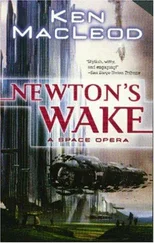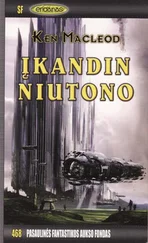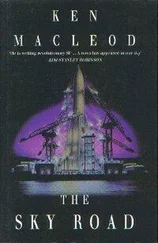He wasn’t offended. The Gevorkian exile could be a little socially inept sometimes — he was quite unaware, for example, of the effect his glossy black fur and striking white chest-streak had on certain female colleagues and students, and his conversation tended to the intermittent — but once you understood that no disrespect or disdain was intended you could see it as an aspect of his genius. That Orro was a genius Darvin did not doubt. The rest of the faculty and the university regarded the physicist as either a prize catch or a prize nuisance.
Orro had begun his research in Lassir, the capital city of Gevork. The son of an ironmonger, he had shown an early devotion to tinkering. Its first result had been a two-wheeled vehicle, which was of no use to anyone. Casting around for a more practical application of its ingenious pedal-and-gear-chain mechanism, he had, at the age of ten, become obsessed with heavier-than-air flight. Some bold spirit in the Lassir Academy had sponsored the lad. Orro’s scholarly career had been brilliant, and he had soared up the military-scientific civil service, but the old sabreurs of the Regnal Air Force had shown no interest in his schemes for chiropters. Dirigibles and sky warriors had been good enough for their fathers and grandfathers, and were therefore good enough for them. If the gods had meant us to build flying machines, they’d chortled, they wouldn’t have given us wings. It was not that the sabreurs were hidebound: much of their military research budget was dedicated to etheric communication. Command and control was the key to modernising warfare, they believed, but the projects in that new and fascinating area were secret.
Orro had decided to pursue his research in the freer air of Seloh; he had money from the patents of various inventions; he was a fine lecturer in his way; his pure and applied mathematics were beyond reproach; and winning a Gevorkian scientist was a matter of some prestige for a Selohic university. Five Ravines had taken him into its wings. But his persistence in his fruitless pursuit was beginning to give people pause. Aeronautical research was not likely to bring credit to the university, let alone results.
There were times, Darvin admitted to himself as he landed in the astronomy department, when he felt dubious about it himself; when he wondered if, perhaps, his childhood fascination with engineering tales had not warped his sense of the possible. The cheap-paper magazines of the genre were heavy on heavier-than-air (there was even a standard abbreviation for it: HTA) and illustrated with garish etchings of gigantic, multi-winged chiropters, carrying passengers across the great channels or dropping bombs on defenceless towns (usually Gevorkian) while dirigibles plunged in flames and entire squadrons of aerial sabreurs fell to deadly blizzards of flechettes.
Darvin walked into his office and made his habitual acquaintance with the leaf-wad and the teacup. Then, with a mixture of excitement and resignation, he set up the first pair of plates for the third and fourth nights’ observations. He worked his way down and up, across and back. He reached the centre of the plate.
Something jumped. Back and forth, back and forth.
Darvin swallowed his thrill. He leaned back and reached for the well-thumbed ephemeris. It fell open at almost the right page; the region of sky covered by these plates was one of the most thoroughly mapped and examined, containing as it did the most conspicuous constellation of the green-tinged stars, known as the Queen of Heaven’s Daughters. He ran a finger-claw down columns and along rows of numbers. He checked equations, the data becoming orbits in his mind as he laboured through the calculations. When he’d satisfied himself that the moving speck was not a known planet or asteroid, he rotated higher-magnification lenses into place on the two objectives, and reapplied his eye to the eyepiece.
At ten-times-higher magnification the speck was a definite streak, though mere hairsbreadths across. The object must be moving quite fast, to show up thus on even a long-exposure photograph. This time it was disappointment that Darvin swallowed. Whatever it was, it wasn’t a hitherto undetected outer planet. Nor an asteroid: it was too fast for that, too.
A comet? That might at least make up for the disappointment. Darvin’s Comet! It would do him no harm for his name to be blazoned on the skies. He indulged the fantasy for a moment. Then he shook it off, stood up and removed the plates, and carefully fitted the plates for the same region for the next two nights, the fifth and sixth. He focused on the centre of the field. Nothing moved.
His held breath escaped, his finger-claws dug into his palms. His shoulders slumped, his folded wings drooped. A flaw in the photograph, that was all. A flaw. Or maybe — Moving by intuition, he shifted the plates up and to the left; still gazing through the eyepiece, fingers twirling the knurled knobs of the vertical and horizontal axes. Dots streaked past his vision. He stopped moving the plates. The view settled.
And there it was. Larger now, by an eyelash, its jump wider by the width of a claw tip: Darvin’s Comet.
He repeated the process for the seventh and eighth, then sat back, wrapping his wings around himself with a shiver of delight. After a minute’s indulgence he stood up and telegraphed his discovery to the observatory. Then he returned to the earlier pair of plates, and resumed his search for the unknown planet that he had already in his own mind named the Wanderer.
“I’ve found a comet,” he told Orro, a few days later when the discovery had been confirmed.
“So I hear,” said Orro. “Congratulations.”
“You’ve heard?”
“A note on the physics wire.”
“Ah. Very good. At least I’ll be remembered for something more than Darvin’s Little Bastards.”
“It would be better if you find Darvin’s Planet,” said Orro.
Darvin wasn’t sure if this was a jibe or a kind word. He chose to take it well.
“Still looking, of course,” he said. “I’ll have the current batch finished in a couple of days, and then the next eight-days’ worth will come in. So it goes.”
“I’d like a look at these, if I may,” said Orro. “It might be possible to work out the comet’s path, and where it’s going.”
“That would be wonderful,” said Darvin. “Where are we going, by the way?”
Orro stopped and looked around as if lost. They had emerged onto a small plaza from an alleyway between the student roosts and the back of the Study of Ancient Times Building. Orro closed his eyes and shook his head.
“I’ll just take you there,” he said.
The Gevorkian set off again with confident stride. Darvin hurried after him, though the scratch of his friend’s claws made him want to take wing. After crossing the plaza and negotiating another couple of alleys, through which trudges were hauling carts of fresh-killed prey for the refectory, they arrived at a patch of waste ground before the slope to the riverbank.
The air was heavy, loud with insects and the laughter of students wing-sailing on skiffs on the water. Yells rose when someone fell off.
On the patch of waste ground, surrounded by a sparse crowd of idle students and curious town kits, and watched over by a stern technician, stood a contraption that Darvin recognised as the realization of his inspiration and his sketch. He spread his arms and wings in exultation. “Brilliant!” he said.
It was a long cylinder of rough white fabric, about two wingspans in diameter, made rigid by eight rings of bendwood, and held in place by guy-ropes like a tent. At one of its open ends stood the dirigible engine, mounted on sturdy trestles, its propeller facing the entrance to the tube. Halfway along it was a large acetate window, into which peered the kinematographic camera on its tripod.
Читать дальше












